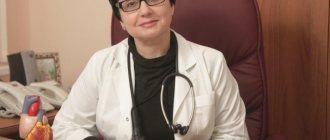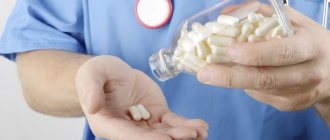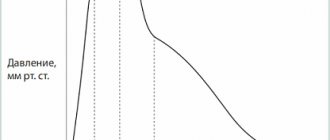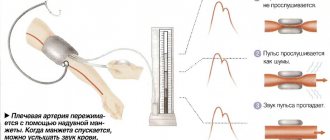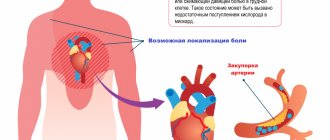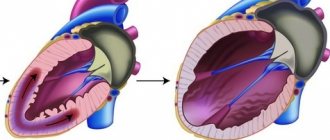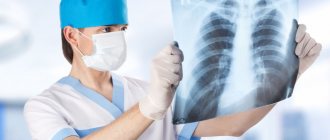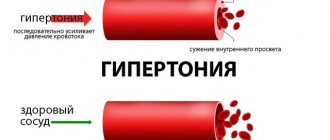Registration phone number › Moscow › Moscow › Russian Cardiology Research and Production Complex
FSBI "National Medical Research Center of Cardiology" (NMRC of Cardiology) of the Ministry of Health of the Russian Federation is one of the leading and oldest specialized medical institutions in Russia, whose activities are aimed at the diagnosis, treatment and prevention of cardiovascular diseases.
- Contacts: telephone numbers, address, official website
- How to get to the Cardiocenter
- Make an appointment at the cardiology center
- Paid services of the cardio center
- Clinical guidelines for cardiology
- Consultative and Diagnostic Department - KDO
- Reviews
The main directions of scientific research of the Institute are atherosclerosis, coronary heart disease, thrombosis, acute myocardial infarction, arterial hypertension, cardiac arrhythmias, primary myocardial lesions, circulatory failure.
The Institute's employees are developing problems of diagnosis and treatment of major diseases of the cardiovascular system, including surgical treatment.
The Research Institute of Cardiology includes 16 departments and 4 independent diagnostic laboratories. The clinic has a capacity of 400 beds.
Hospitalization at the Institute of Clinical Cardiology is possible on the basis of state programs - compulsory medical insurance, emergency medical care, VTMP (quota) - if there are indications based on the decision of the hospitalization commission, as well as on a contractual basis.
The National Medical Research Center for Cardiology ( NMRC of Cardiology ) is the leading and oldest medical institution in Russia engaged in the diagnosis, treatment and prevention of diseases of the cardiovascular system - such as myocardial infarction, angina pectoris, arterial hypertension, cardiac rhythm and conduction disorders, myocardial diseases. Particular attention is paid to complex and rare forms of diseases, identifying the disease in the early stages, since timely consultation with a doctor is extremely important to prevent serious complications. National Medical Research Center of Cardiology is equipped with modern high-tech expert-class equipment for examining patients and treating them with both therapeutic and surgical methods, including angioplasty and stenting, coronary bypass surgery, radiofrequency ablation, and installation of pacemakers.
The Institute of Clinical Cardiology named after A.L. Myasnikov, part of the National Medical Research Center of Cardiology (Director - Academician of the Russian Academy of Sciences, Professor I.E. Chazova) is the largest medical and scientific medical institution, with a hospital with 400 beds, a polyclinic (scientific dispensary department) on 200 visits per day, day hospital. The Institute's clinic is a 10-story building located in a park area on Rublevskoye Highway; in the clinical departments there are double and single rooms with all amenities, superior rooms, including two-room ones (on a contractual basis).
The Institute employs 5 academicians and corresponding members of the Russian Academy of Sciences and the Russian Academy of Medical Sciences, 25 professors, more than 100 candidates of medical sciences, who have rich diagnostic and therapeutic experience, have been working with cardiac patients for many years and are able to provide assistance to the patient at the most modern world level with the highest possible clinical results .
Medical work:
- 1st clinical department.
- 2nd clinical department.
- 3rd clinical department.
- 4th clinical department.
- 5th clinical department.
- 6th clinical department.
- 7th clinical department.
- 8th clinical department.
- Department of Medical Rehabilitation and Physiotherapy.
Diagnostic departments and laboratories:
- Clinical diagnostic laboratory.
- X-ray room.
- Department of functional diagnostics.
- Consultative and diagnostic department.
- Laboratory of X-ray endovascular diagnostic methods and treatment on an outpatient basis.
- Endoscopy department.
- Department of Ultrasound Diagnostics.
- Department of Biochemistry of Free Radical Processes.
- Other branches.
Scientific activity:
- Department of Emergency Cardiology.
- Department of Pulmonary Hypertension and Heart Diseases.
- Department of Cardiovascular Surgery.
- Department of Angiology.
- Hypertension department.
- Department of Atherosclerosis Problems.
- Department of Clinical Electrophysiology and X-ray Surgical Methods for the Treatment of Heart Rhythm Disorders.
- Department of Myocardial Diseases and Heart Failure.
- Department of Clinical Problems of Atherothrombosis.
- Department of Ultrasound Research Methods.
- Department of X-ray endovascular diagnostic and treatment methods.
- Tomography Department.
- Department of Radionuclide Diagnostics and Positron Emission Tomography.
- Department of new diagnostic methods.
- Department of outpatient treatment and diagnostic technologies.
- Department of Neurohumoral and Immunological Research.
Contacts of the Myasnikov Cardiocenter: telephone numbers, address, official website
FSBI "National Medical Research Center of Cardiology" (NMRC of Cardiology) of the Ministry of Health of the Russian Federation - cardiocenter of the FSBI NMRC of Cardiology of the Ministry of Health of the Russian Federation:
- Address: 121552, Moscow, st. 3rd Cherepkovskaya, 15a
- Registration phone number (call center): 8 (495) 150-44-19, 8 (495) 414-69-66 - Monday-Saturday from 9.00 to 18.00, Sunday - closed.
- Official website: cardioweb.ru
- Social networks: VKontakte, Facebook, Instagram
Consultative and diagnostic department - KDO:
- Registration for patients served on a commercial basis, 8(499) 149-03-13
- Opening hours: Monday to Friday from 8.30 to 19.00, Saturday from 8.30 to 16.00
Paid medical services at the A.L. Myasnikov ICC:
- Registration, 8(495)414-62-03
- Hospitalization on a paid basis: 8(495) 414-68-17,, 8(495)414-65-25
- Email address: [email protected]
- Opening hours: Monday to Friday from 8.30 to 17.00, Saturday, Sunday - days off
- Cardiology center information:
- Phone number, 8(499) 140-93-36
- Opening hours: Monday to Friday from 9.00 to 16.00
Visiting hours for patients at the Institute of Clinical Cardiology:
- Tuesday, Thursday from 16.00 to 18.30
- Saturday, Sunday from 10.00 to 17.30
- From 15.00 to 16.00 - quiet time. VISITING IS PROHIBITED
Chief cardiologist Chazova Irina Evgenievna: Deputy General Director, Director of the Institute of Clinical Cardiology named after. A.L. Myasnikova Federal State Budgetary Institution "National Medical Research Center of Cardiology" of the Ministry of Health of Russia, Academician of the Russian Academy of Sciences, Professor, Doctor of Medical Sciences.
How to get to the Myasnikov Cardiocenter
How to get there by public transport:
- "Molodezhnaya" metro station (exit the first car), then bus No. 660 to the "VKNTs" stop.
- Krylatskoye metro station, then bus No. 129 or minibus No. 376M to the Cherepkovo stop, near the Europark shopping center. Next, cross Rublevskoye Highway via the underground passage and follow 3rd Cherepkovskaya Street 950 meters to the entrance to the central entrance.
- from the Rublevsky shopping center, then bus No. 127 and No. 626 to the Cherepkovo stop, near the Europark shopping center. Next, cross Rublevskoye Highway via the underground passage and follow 3rd Cherepkovskaya Street 950 meters to the entrance to the central entrance.
- metro station "Schukinskaya", then bus number 798 to the stop "VKNTs".
How to get there by personal transport: inner ring of the Moscow Ring Road, 58th kilometer, turn to the “Cardiocenter” sign. Further, after about 150 meters, you will see the “VKNTs” bus stop. The vehicle can be parked in the free parking zone along 3rd Cherepkovskaya Street.
Driving directions
How to get to the consultation and diagnostic department: building 5 “Central entrance”, go straight along the corridor to the security post. Before the security post, you need to turn right, go through the glass doors and go up the stairs (or use the elevator) to the floor above. To contact the reception desk, the patient must receive a coupon for the electronic queue at the terminal.
How to get to the department of paid medical services: You go to the “Central entrance”, write out a pass at the pass office (you must have a passport with you) and go behind the security post. Further along the corridor you reach a pharmacy kiosk and turn right. You need the 3rd building, first floor, office No. 115.
Make an appointment at the cardiology center
Consultation at the Consultative and Diagnostic Department of NMICC within the framework of compulsory medical insurance is carried out ONLY by appointment in the presence of a CORRECTLY completed referral form 057у.
The center provides consultations with cardiologists on all issues of diagnosis and treatment of cardiovascular diseases in adult patients (from 18 years of age).
To sign up for a free consultation (compulsory medical insurance), you must have with you:
- referral to the Institute of Clinical Cardiology named after. A.L. Myasnikov Federal State Budgetary Institution "National Medical Research Center of Cardiology" of the Ministry of Health of Russia from the clinic at the place of residence in the established form 057/u-04;
- passport;
- compulsory medical insurance policy;
- insurance certificate of compulsory pension insurance (SNILS);
- certificate of disability (if there is a disability).
Registration for a consultation is preliminary and can be made by contacting the reception desk of the Consultative and Diagnostic Department on weekdays from 9.00 to 17.00.
Contact numbers: 8-800-707-44-19.
Educational medical portals
Med-edu.ru
Another great educational resource. Today MED-EDU.ru is the largest Russian educational video portal for doctors. A huge number of interesting video lectures, perfectly designed in terms of presentation of material.
All-Russian educational Internet program for doctors Internist.ru
Amazing thing. All-Russian scientific and educational Internet program for doctors, existing since 2002. where you can watch video lectures and read articles on the most pressing issues in the diagnosis and treatment of diseases in the field of cardiology, gastroenterology, pulmonology, hepatology, hematology, urology and other medical specialties.
Univadis.ru
Interesting portal. The most interesting things: registered users get access to the latest publications of one of the most famous, oldest and most authoritative journals in medicine, The Lancet (UK). In addition, the site contains wonderful interactive 2D and 3D atlases of human anatomy. We liked.
MedTusovka
A fairly young, but promising social network for doctors, where you can communicate with colleagues, discuss complex issues in consultation, get legal advice and much more. Useful resource.
CardioCity.ru
This portal is interesting for its excellent selection of clinical recommendations of the VNOK (All-Russian Scientific Society of Cardiologists) and recommendations of the ESC (European Society of Cardiology). As they say, everything is in one place.
Paid services of the Myasnikov Cardiocenter
National Medical Research Center of Cardiology is a state budgetary institution that provides medical care under the programs of Compulsory Medical Insurance (CHI), Specialized Medical Care (SMP) and High-Tech Medical Care (HTC) (quotas) in accordance with the standards for the provision of such care, as well as on a contractual (paid) basis .
The organization of paid medical services is carried out by the department for the development of extra-budgetary activities.
For detailed information and to sign up for services provided at the center on a contractual basis, please contact:
Terms of service and prices
Department employees organize:
- planned hospitalization;
- outpatient consultation with a specialist at any level;
- conducting outpatient examinations;
- conclude an agreement with the patient or his representative, draw up all legally necessary documentation;
- will make all financial calculations;
- medical assistance to foreign citizens.
Sign up for a consultation
The cost of treatment depends on the number of days spent in the hospital, the list of examinations performed or interventions performed. The average length of hospitalization for examination and treatment in the cardiology department is 5-10 days. For each patient, an individual diagnostic and treatment program is drawn up, taking into account the preliminary diagnosis, severity of the condition, the presence of concomitant diseases, identification of new diseases that require additional research, the need for individual care, etc. The final payment is made for services actually rendered on the day of discharge.
Paid services:
- Outpatient consultations.
- Angiographic studies.
- Genetic research.
- Hormonal studies.
- Immunological studies.
- Instrumental methods of diagnosis and treatment carried out in departments.
- Blood tests using the STA-compact device.
- Consultations in a hospital.
- Comprehensive Check-Up examination programs.
- General clinical, biochemical and bacteriological laboratory tests.
- Operations.
- Pathomorphological studies.
- Fasting for a sick person.
- Hospital stay.
- Treatment room.
- Radioimmune studies.
- Radionuclide research.
- X-ray studies.
- Dental care.
- Telemedicine.
- Tomographic studies.
- Transfusiology.
- Physiotherapy.
- Electrophysiological studies and procedures.
- Endoscopic methods of diagnosis and treatment.
Examination and treatment are carried out in a hospital, clinic, or day hospital. Various developed examination and treatment programs are offered, and individual programs are drawn up.
Clinical guidelines for cardiology
National recommendations on cardiology:
Clinical guidelines prepared on behalf of the Ministry of Health of the Russian Federation
Russian recommendations on cardiology:
- Diagnosis and treatment of arterial hypertension.
- Diagnosis and treatment of idiopathic pulmonary hypertension.
- Diagnosis and treatment of cardiomyopathies (hypertrophic).
- Diagnosis and treatment of heart rhythm and conduction disorders.
- Diagnosis and treatment of metabolic syndrome.
- Diagnosis and treatment of myocarditis.
- Diagnosis and treatment of heart failure (acute and chronic).
- Diagnosis and treatment of patients with ST-segment elevation AMI.
- Diagnosis and treatment of chronic coronary heart disease.
- Recommendations for clinical observation.
- Diagnosis and treatment of patients with acute coronary syndrome without ST segment elevation of the electrocardiogram.
- Diagnosis and treatment of chronic thromboembolic pulmonary hypertension.
Books
Scientific and practical peer-reviewed Russian Journal of Cardiology is the official press organ of the Russian Society of Cardiology (RSC), a scientific and practical peer-reviewed journal. Editor-in-Chief – Shlyakhto E.V., President of the RKO, Academician of the Russian Academy of Sciences, Professor, Director of the Federal State Budgetary Institution “National Medical Research Center named after. V. A. Almazov" of the Ministry of Health of Russia. Saint-Petersburg, Russia.
This is a scientific, practical, peer-reviewed journal for cardiologists and therapists. The main focus of the publication is scientific articles devoted to original and experimental research, issues of pharmacotherapy and cardiac surgery of cardiovascular diseases, and new diagnostic methods.
The Russian Journal of Cardiology has been published since 1996, is included in the list of publications recommended for the publication of articles containing dissertation materials (VAC), included in Scopus and the Russian Science Citation Index, registered in the Club of Editors-in-Chief of Scientific Journals of the European Society of Cardiology.
Full-text versions of all issues are posted on the website of the Scientific Electronic Library - www.elibrary.ru, the publishing house website - www.roscardio.ru, archive of issues since 1997. – www.medi.ru/card.
Journal website: https://russjcardiol.elpub.ru/jour/index
Rules for authors: https://russjcardiol.elpub.ru/jour/about/submissions#authorGuidelines
Magazine subscription:
ISSN 1560-4071 (Print), ISSN 2618-7620 (Online), A4 format, 12 issues per year, initial circulation 7,000 copies.
Open Access Journal (OA, DOAJ).
Registered by the Russian Press Committee on April 6, 1998. Registration No. 017388
Science Index (2019) 2.599 Impact factor (2019) 1.668
Scopus 0,5
Copernicus 117.13
A new project of the Russian Journal of Cardiology - RKZh. Education.
The goal of creating a new direction of scientific activity is to contribute to improving the quality of education in the field of cardiology among practitioners and researchers.
Separate independent editorial board and editorial council. Ch. editor – Duplyakov D.V.
Systematic reviews, classic reviews, lectures, interviews on current topics, as well as the results of original research. Publications of the journal will support a broad educational platform created by the Russian Society of Cardiology for specialists in various fields of cardiology.
4 issues per year, electronically
All articles will be included in the Scopus database and all other citation and archiving databases that include the main journal.
Plan of issues of the Russian Journal of Cardiology for 2021
Issue/Topic/Guest Editor-in-Chief
- Acute and chronic heart failure/Koziolova N. A., Mikhailov E. N., Zhirov I. V.
- Coronary heart disease, myocardial infarction/Barbarash O. L., Galyavich A.S.
- Diabetes mellitus, Metabolic syndrome/Arutyunov G.P., Chumakova G.A.
- Arterial hypertension/Kobalava Zh.D., Nedogoda S.V.
- Epidemiology and prevention. Sports cardiology and cardiac rehabilitation/Lyamina N.P., Trubacheva I.A.
- Lipids and atherosclerosis. Atherothrombosis/Grinshtein Yu.I., Yavelov I.S.
- Arrhythmias/Lebedev D. S., Popov S. V.
- Cardiac surgery/Chernyavsky A. M.
- Congress. Psychosocial aspects/Taratukhin E. O.
- Cardiogenetics/Kostareva A. A.
- Myocarditis, valvular and non-coronary diseases/Blagova O. V., Moiseeva O. M.
- Research methods in cardiology/Atkov O. Yu.
RKZH. Education
Issue/Guest Executive Editor
1. – Zagidullin N. Sh. 2. – Zateyshchikov D. A. 3. – Yavelov I. S. 4. – Gubareva I. V.
Consultative and Diagnostic Department - KDO
Reception in the consultative and diagnostic department is conducted by experienced cardiologists: highly qualified doctors, doctors and candidates of medical sciences. The Consultative and Diagnostic Department of the Federal State Budgetary Institution "National Medical Research Center of Cardiology" of the Russian Ministry of Health offers a multidisciplinary approach to the diagnosis and treatment of cardiovascular diseases.
The provision of medical care in an outpatient setting is carried out both within the framework of the compulsory medical insurance system and on a paid basis.
The department conducts such studies as: ECG, ECHO-CG, Treadmill test, stress - Echocardiography, Holter ECG monitoring, 24-hour blood pressure monitoring, ultrasound examinations of the brachiocephalic arteries, renal arteries, arteries and veins of the lower extremities, ultrasound examinations of the abdominal organs and thyroid gland, volumetric sphygmography and applanation tonometry, chest radiography, densitometry.
At the initial consultation with a cardiologist, a thorough analysis of the patient’s complaints, data from previous examinations, anamnesis is collected, and the objective status is assessed. If necessary, the doctor prescribes a set of outpatient tests to clarify the diagnosis. The patient receives a statement with a preliminary diagnosis, treatment recommendations and an examination plan. For emergency indications, patients with acute coronary syndrome are hospitalized in the intensive care unit of the National Medical Research Center.
At the repeated consultation, the patient is given a detailed report, which contains the data of the outpatient examination, the final diagnosis, and also provides recommendations for drug therapy, optimization of lifestyle and nutrition.
If there are indications for planned hospitalization in the hospital of the National Medical Research Center of Cardiology, documents are submitted to the hospitalization commission.
The cardiologist explained the importance of statins during coronavirus
— How has the pandemic affected the situation with mortality from cardiovascular diseases?
“Unfortunately, we are again seeing an increase in the number of new cases of COVID-19. Cardiovascular diseases do not increase the risk of contracting COVID-19, but their presence during COVID-19 increases the risk of death by 2.4 times, since the SARS-CoV-2 coronavirus destabilizes the state of the cardiovascular system due to the development of the so-called hypercoagulation syndrome with thrombosis and thromboembolism. For example, if you have arterial hypertension with COVID-19, the risk of death increases by 3.1 times, coronary heart disease - by 4.3 times. Cardiac complications after COVID-19 are very diverse, which is why the term “acute COVID-19-associated cardiovascular syndrome” was even coined. Another reason for the increase in mortality from cardiovascular diseases is due to the fact that during the pandemic, the number of times patients seek medical help for emergency cardiovascular diseases has decreased significantly due to fear of infection. It is important to note that particularly vulnerable groups of patients with COVID-19 also include men, older people, people with obesity or diabetes, that is, those who are susceptible to traditional risk factors for cardiovascular disease.
“The virus is not only dangerous for people with heart disease, but can also become a trigger for their development. What causes this?
— To penetrate the host cell, the SARS-CoV-2 coronavirus uses a “spike” protein, it is called spike or S-protein, which has two important regions - S1 and S2. The S1 site binds to angiotensin-converting enzyme type 2 receptors on the surface of the host cell, and S2 mediates membrane fusion. Thanks to the S-protein, which in its structure imitates human angiotensin-converting enzyme type 2, SARS-CoV-2 viral particles bind to angiotensin-converting enzyme type 2 receptors on the surface of cells of the respiratory organs, esophagus, intestines, heart, brain and others organs with penetration into the cell. The main target of the SARS-CoV-2 virus is the respiratory organs, namely the alveolar cells of type II lungs. However, the SARS-CoV-2 virus can provoke acute myocardial damage, the mechanisms of which are poorly understood. There are no data that would explain the selectivity of organ damage, in particular the cardiovascular system, or the diversity of clinical manifestations of the disease, even in young people. Perhaps the viral load matters: the higher it is, the higher the likelihood of acute myocardial damage. Such data are available in the literature, but they also require further study. Thus, the COVID-19 pandemic is a global challenge to the entire society. Overall mortality has increased worldwide in 2021, and patients with cardiovascular disease are at particular risk and need to be taken care of at all costs.
— What methods of prevention are there for people with cardiovascular diseases?
— In my opinion, these are the following measures. First, treatment of the disease itself within the framework of existing clinical recommendations. It is necessary to monitor blood pressure, pulse, blood sugar, total cholesterol and low-density lipoproteins, etc. For example, let's take a patient with coronary heart disease. In accordance with the recommendations, he should regularly take small doses of acetylsalicylic acid, high doses of statins, if he has hypertension - angiotensin-converting enzyme inhibitors. Due to the fact that angiotensin-converting enzyme type 2 is a functional receptor for SARS-CoV-2, it has previously been suggested that this may explain the high risk of death from COVID-19 in patients with hypertension taking drugs of this group. Today it has already been established that angiotensin-converting enzyme inhibitors, on the contrary, have a protective effect against COVID-19. Moreover, there is enough data indicating that if a patient with arterial hypertension becomes ill with a new coronavirus infection, then regular use of drugs from this group significantly reduces the risk of hospital death. Therefore, experts from the Russian Society of Cardiology strongly recommend continuing to take them.
Secondly, increasing the level of medical literacy of patients themselves. This includes self-monitoring of the condition, compliance with anti-epidemic requirements and rules of personal hygiene, lifestyle changes, modification of risk factors for cardiovascular diseases, for example, quitting smoking.
— Recently, the Russian Society of Cardiology included statins in its guidelines for the treatment of COVID-19. What is this connected with?
“Firstly, a new coronavirus infection can cause instability of the atheromatous plaque with subsequent development of myocardial infarction, which increases the mortality rate of infected patients. Therefore, in patients with coronary artery atherosclerosis and COVID-19, statin therapy is absolutely justified. Secondly, with COVID-19, there is impaired endothelial function and an increased risk of thrombosis in blood vessels, while statins, on the contrary, restore endothelial function, reduce the severity of inflammation and the risk of thrombosis. Statins also have immunomodulatory effects. All of these additional effects of statins can reduce the risk of developing life-threatening conditions. So, the recommendations of not only the Russian Society of Cardiology, but also many other countries for the treatment of COVID-19 note the need to prescribe statins to all patients with hypercholesterolemia infected with SARS-CoV-2. Therefore, patients with COVID-19 should continue to take statins, and patients with COVID-19 should be prescribed statins if they are eligible for them but are not taking them.
— You mentioned acute COVID-19 - associated cardiovascular syndrome. Who develops it more often and how does it manifest?
— Any infectious process can trigger the development of acute cardiovascular diseases, COVID-19 is no exception. About 40% of patients who die from a new coronavirus infection have acute myocardial injury, and the mechanisms of cardiac involvement are very diverse. The likelihood of acute cardiac injury is highest in older patients with arterial hypertension or chronic coronary heart disease. However, with COVID-19, acute cardiac injury is possible at a younger age without concomitant diseases. For example, acute myocarditis: the average age of the described cases is 50.4 years, while 50% of patients have no concomitant diseases. However, until large-scale studies are conducted, the incidence and outcome of acute myocardial injury are unclear. Clinical manifestations are very diverse: from cardiogenic shock to various rhythm disturbances.
— Do cardiovascular complications develop after Covid in patients who previously had no problems with the cardiovascular system?
“It is impossible to answer this question with certainty until specially designed studies are carried out. Lessons learned from previous influenza pandemics are that cardiovascular disease is a major source of post-infectious complications. Following COVID-19, a large number of people have elevated high-sensitivity troponin levels, indicating myocardial damage, which can be short-term or long-term with dramatic consequences for prognosis. Long-term observation of patients after infection caused by SARS-CoV revealed disturbances in lipid metabolism. SARS-CoV-2 has a structure similar to SARS-CoV, therefore, after COVID-19, it is logical to evaluate the lipid profile of patients over a long period of time. Long-term observation of recovered patients will bring clarity to this issue.
— Is the number of patients with heart failure predicted to increase after the pandemic?
— Yes, because there is a close and intriguing relationship between the new coronavirus infection and heart failure that goes beyond pathophysiology. Firstly, during the period of prolonged self-isolation, many patients were deprived of qualified medical care, so COVID-19 could worsen the course of existing diseases, including cardiovascular diseases with the development of heart failure. Following the national lockdown in Denmark, there was a 47% reduction in the number of new cases of atrial fibrillation reported, with a significant increase in the risk of various complications. Thus, the prolonged lockdown during the COVID-19 pandemic is the reason for the increase in various heart complications. Second, heart failure may be a complication of COVID-19. Up to 41% of patients who are critically ill or with underlying cardiovascular disease have myocardial damage that can lead to heart failure. Many people continue to feel tired, short of breath, and have palpitations 3–6 months after recovery. In the presence of these complaints, cardiac studies showed signs of myocardial damage even in those people who had only mild symptoms of COVID-19. German studies show that 2 months after a positive test for SARS-CoV-2, 78% of survivors have permanent heart damage, 60% of whom have signs of myocarditis according to magnetic resonance imaging. Today there is enough data on the subacute course of myocarditis after recovery from COVID-19 with the development of chronic heart failure. The development of heart failure can be associated not only with a violation of the pumping function of the left ventricle, but also with a violation of only diastolic function, right ventricular function, and pulmonary hypertension.
